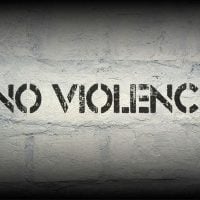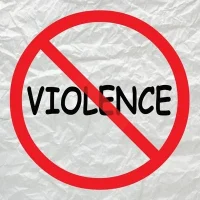Deadline: 7-Jan-22
The Bureau of Population Refugees and Migration (PRM) has announced the Request for Concept Notes for 2022 NGO Programs Benefiting Displaced Persons and Refugees in Iraq, Jordan, Lebanon, and Turkey.
Focus Areas
Concept notes must focus on one or more of the following sectors and sub-sectors:
- Protection, including:
- Child protection
- Gender-based Violence Prevention (GBV)
- Health
- Mental Health and Psychosocial Support (MHPSS)
- Water, Sanitation, and Hygiene (WASH)
- Education
- Livelihoods and Economic Empowerment (if selected, full proposals must include a market analysis, or it will be disqualified)
- Shelter
- Core Relief Items/Cash-Based Initiatives
Country-Specific Provisions
- Iraq
- Sectors/sub-sectors:
- Projects for Iraqi IDPs and Returnees: Protection (including addressing GBV), MHPSS, and Livelihoods.
- Projects for Syrian Refugees: Protection (including addressing GBV and Child Protection), Health, Mental Health/PSS, Livelihoods, WASH, and Shelter.
- Joint Projects for Iraqi IDPs/Returnees and Syrian Refugees: Protection (including addressing GBV and Child Protection), MHPSS, and Livelihoods.
- Projects in all sectors should adhere to the relevant Cluster’s guidance.
- Provision of core relief items, cash assistance, and/or local government capacity-building will be considered if integrated in a project focused on one or more of the sectors.
- In the livelihoods sector, PRM will prioritize impact-driven, market-based projects that seek to improve the economic well-being of beneficiaries. Wherever possible, projects should seek to restore or build upon former livelihoods of affected populations. Livelihoods programs should include at least one governorate other than Ninewa and Anbar.
- Proposed protection projects for IDPs should focus on longer-term needs of IDPs in order to facilitate safe, voluntary, and dignified returns or local integration, including but not limited to recovery of legal documents and assistance with housing, land, and property rights.
- PRM will not fund programs for the rehabilitation or reconstruction of infrastructure, including schools.
- Sectors/sub-sectors:
- Jordan – Sectors: Protection, Child Protection, GBV prevention and response, Education, Health, Mental Health/PSS, Livelihoods, and Shelter.
- Provision of core relief items, cash assistance, and/or capacity development activities will be considered if integrated in a program focused on one or more of the sectors.
- PRM will prioritize education programming that addresses key educational gaps that disproportionately affect refugees and that demonstrate clear linkage with the child protection response.
- PRM’s health care focus in Jordan is on health services not already covered by existing programs and/or provided by the public healthcare system. This includes projects that help support refugees’ access to health services that are already established.
- In the livelihoods sector, PRM will prioritize sustainable, impact-driven, market-based projects that seek to measurably improve the economic wellbeing of beneficiaries.
- Lebanon – Sectors: Protection, Child Protection, GBV prevention and response, WASH, Education, Health, Mental Health/PSS, Livelihoods, and Shelter.
- Projects in all sectors should adhere to the relevant Working Group’s guidance.
- Provision of core relief items, cash assistance, and/or capacity development activities will be considered if integrated in a program focused on one or more of the sectors.
- Provision of WASH services, namely water trucking and desludging, will be considered if it covers a critical gap for a limited period and if integrated in a program focused on one or more of thesectors.
- In the education sector, PRM prioritizes support to help children prepare for, enter, participate, and succeed in formal education and to assist youth who may be unlikely to participate in formal education to obtain the necessary skills to transition to adulthood. In the livelihoods sector, PRM will prioritize impact-driven, market-based projects that seek to improve the economic well-being of beneficiaries. Wherever possible, projects should seek to restore or build upon former livelihoods of affected populations. Priority will be given to projects that include social cohesion activities and involve host community members to foster cooperation, understanding, and trust between refugee and host community groups
- Turkey – Sectors: Protection, Child Protection, Livelihoods, GBV prevention and response, Health, Education, Shelter, Mental Health/PSS, and Core Relief Items/Cash-Based Initiatives.
- Provision of core relief items, cash assistance, livelihoods projects and/or capacity development activities will be considered if integrated in a program that includes one or more of the sectors.
- For livelihoods programs, priority will be given to activities that link training to sustainable, income-generating employment opportunities. As with all proposed programming, livelihoods activities should fill critical gaps or needs currently not covered by other local or national responses.
- Priority will be given to projects that include social cohesion activities and involve host community members to foster cooperation, understanding, and trust between refugee and host community groups. Such efforts should be integrated as part of the proposed program, rather than one-off activities.
- PRM’s health care focus in Turkey is on health services not covered by existing programs and/or provided by the Ministry of Health. This includes projects that help support refugees’ access to health services that are already established.
- PRM encourages projects targeted at the education sector, particularly youth in secondary or vocational school, at-risk of dropping out, with special needs, or in higher education.
Funding Information
- Iraq
- Duration of Activity: 12 or 24 months (24 months preferred)
- Funding Levels:
- Funding floor per award (lowest $$ value): $2,000,000 per year
- Funding ceiling per award (highest $$ value): $4,000,000 per year
- Jordan
- Duration of Activity: 12 months, 24 months, or 36 months (24 months preferred but PRM may consider 36 months for well-established organizations with a track record of program success and a concrete sustainability plan.)
- Funding Limits:
- Funding floor per award for an individual organization (lowest $$ value): $750,000 per year
- Funding ceiling per award for an individual organization (highest $$ value): $3,000,000 per year
- Lebanon
- Duration of Activity: 12 or 24 months (24 months preferred)
- Funding Limits:
- Funding floor per award for an individual organization (lowest $$ value): $500,000 per year
- Funding ceiling per award for an individual organization (highest $$ value): $3,000,000 per year
- Funding ceiling per award for a consortium (highest $$ value): $4,000,000 per year*
- *Note: For purposes of consortia applying for PRM funding in Lebanon, PRM considers a consortium to be a group of no less than five NGOs formed to undertake, or proposing to undertake, an assistance activity exceeding the resources of any one member. At least three of the partners must be national NGOs.
- Turkey
- Length: 12 months, 24 months, or 36 months (24 months preferred but PRM may consider 36 months for well-established organizations with a track record of program success and a concrete sustainability plan.)
- Funding Levels:
- Funding floor per award (lowest $$ value): $1,000,000 per year
- Funding ceiling per award (highest $$ value): $3,000,000 per year
Eligibility Criteria
- Eligible Applicants:
- Nonprofits having a 501(c)(3) status with the IRS, other than institutions of higher education (U.S.-based NGOs must be able to demonstrate proof of non-profit tax status);
- Nonprofits without 501(c)(3) status with the IRS, other than institutions of higher education (overseas-based NGOs must be able to demonstrate proof of registration in country of domicile); and
- International Organizations.
- International multilateral organizations, such as United Nations agencies, should not submit concept notes in response to this Notice of Funding Opportunity.
- Multilateral organizations that are seeking funding for programs relevant to this announcement should contact the PRM Program Officer before the closing date of this announcement.
- Concept note activities should primarily support displaced persons and refugees in Iraq, Jordan, Lebanon, and Turkey. Concept note activities are restricted to beneficiaries living outside of government or UNHCR-run camps, unless otherwise noted in the country-specific guidance.
- Organizations should submit separate concept notes for each country program. Organizations may submit no more than two concept notes per country in line with country-specific guidelines. No regional or multi-country concept notes will be considered. Any additional submissions received will be disqualified. Upon review, PRM reserves the right to ask an applicant to merge submitted concept notes into a single proposal. Please see country-specific provisions for the maximum number of concept notes allowed to be submitted.
- PRM welcomes submissions from both international and national/local NGOs.
- Applicants are strongly encouraged to engage with existing structures to provide services to refugees, including those operated by international organizations and national or local actors (both governmental and NGO), rather than establishing new, parallel structures. If an activity is parallel to or duplicative of the national response, the proposal must explain why and address how the project is linked to the national response and provide a brief timeline for phase-out.
For more information, visit https://www.grants.gov/web/grants/view-opportunity.html?oppId=336635









































